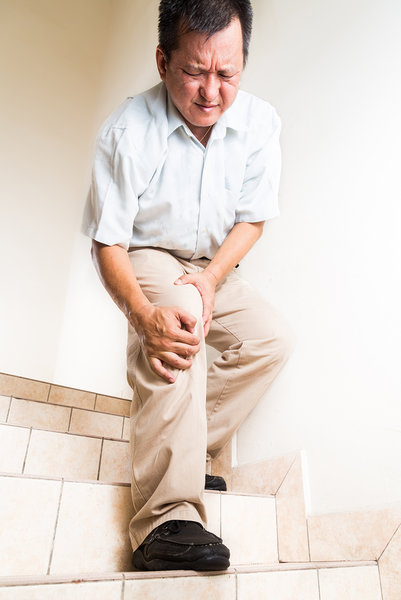 When you have pain in your knee, you want to resolve it once and for all. After trying multiple non-surgical solutions, there may come a time when you opt for surgery. Before you head into the operating room, there are some things you must know about total knee replacement surgery. Preparing before surgery and following post-surgery instructions will ensure a successful result.
When you have pain in your knee, you want to resolve it once and for all. After trying multiple non-surgical solutions, there may come a time when you opt for surgery. Before you head into the operating room, there are some things you must know about total knee replacement surgery. Preparing before surgery and following post-surgery instructions will ensure a successful result.
Ensure a complete medical examination happens before the surgical procedure. Your surgeon will take your medical history and review images to determine the strategy to use during the operation. Ensure you understand the examination results and ask questions about the surgery and recovery.
Total knee replacement surgery can be performed for several reasons. The first reason would be an injury. Whether from sports or an accident, when bones in the knee are injured or broken, surgery may be required to repair the damage. In these cases, non-surgical options may not be available, and surgery is the only viable option.
Other conditions can affect the knee, causing pain. Arthritis or osteoarthritis are two degenerative conditions that cause increasing discomfort. This chronic pain can reduce mobility and interfere with a person’s day-to-day activities. There are non-surgical options at the beginning, such as cortisone injections and anti-inflammatory medications, but there may come a time when those are no longer effective.
Total Knee Replacement Surgery replaces the damaged bone with an artificial joint made from metal. Physical therapy to strengthen the muscles surrounding the knee and medications are used in the recovery process. Following your doctor’s and physical therapist’s instructions will reduce recovery time.
Your doctor will explain the risks. Remember, it is a significant operation, and some issues may arise in the operating room, during recovery, or even in the future. Being well informed about the surgery and post-surgery recovery will reduce stress, and that always helps achieve the desired results.
For more information on total knee replacement surgery, contact Dr. Dan Albright. Call 919-863-6808

 Having healthy and robust knees is crucial when executing day-to-day activities. At times, accidents and injuries occur, and you require surgery. In the case of knee surgery, the recovery may be challenging. Depending on the patient’s physical health and fitness before the surgery, recovery may take anywhere from six weeks to one year. So, how can you recover from
Having healthy and robust knees is crucial when executing day-to-day activities. At times, accidents and injuries occur, and you require surgery. In the case of knee surgery, the recovery may be challenging. Depending on the patient’s physical health and fitness before the surgery, recovery may take anywhere from six weeks to one year. So, how can you recover from  It is vital to maintain strong, healthy knees to perform daily activities. A single fall can keep you from enjoying leisure activities or carrying out your everyday routine. An operation may be needed to resolve an issue and get you back to health. On average, it takes six months for recovery and up to a year before being able to do strenuous physical activities. There are several tips to help with a faster recovery after
It is vital to maintain strong, healthy knees to perform daily activities. A single fall can keep you from enjoying leisure activities or carrying out your everyday routine. An operation may be needed to resolve an issue and get you back to health. On average, it takes six months for recovery and up to a year before being able to do strenuous physical activities. There are several tips to help with a faster recovery after  If you are planning on having your knee repaired or replaced, it is crucial to keep your doctors informed of changes in health or habits. Without this information, these professionals cannot possibly deliver the level of needs-specific care and attention that you require. Following are a few things that your
If you are planning on having your knee repaired or replaced, it is crucial to keep your doctors informed of changes in health or habits. Without this information, these professionals cannot possibly deliver the level of needs-specific care and attention that you require. Following are a few things that your  The legs are the human body’s wheels that carry us from place to place. However, knee pain can be debilitating and prevent standard functionality and performance. Whether due to water build-up, loose cartilage, or swelling and arthritis,
The legs are the human body’s wheels that carry us from place to place. However, knee pain can be debilitating and prevent standard functionality and performance. Whether due to water build-up, loose cartilage, or swelling and arthritis, 

 After years of dealing with knee pain and excessive stiffness in the knee joint, you may be ready to try a surgical intervention.
After years of dealing with knee pain and excessive stiffness in the knee joint, you may be ready to try a surgical intervention.  There are many causes for joint discomfort. Inflammation and stiffness are typically related to
There are many causes for joint discomfort. Inflammation and stiffness are typically related to  The ability to walk without pain is something that most people take for granted. However, if you ever get a
The ability to walk without pain is something that most people take for granted. However, if you ever get a